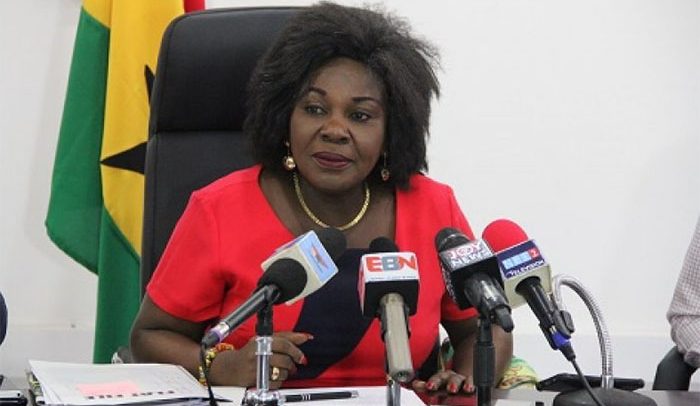Cecilia Abena Dapaah
Minister-designate for Sanitation and Water Resources, Cecilia Abena Dapaah, has stated that the war declared by President Nana Addo Dankwa Akufo-Addo on illegal mining activities was to a large extent successful both in improving water quality and fighting off the menace of galamsey.
According to her, the water quality of the country as at July 2020 was quite good with reduced turbidity levels due to the fight against illegal mining activities, popularly known as “galamsey.”
Taking her turn at the Appointments Committee of Parliament yesterday, the minister-designate said “we have the Water Resources Commission in charge of monitoring our water bodies. And since the President’s declaration of war on illegal mining, we have the monitoring unit that goes round and submits quarterly reports.”
“I must say that the water quality as at July 2020 was quite good with their turbidity levels. Birim River arsine in Akim Oda and Osino, for instance, had a turbidity of 1,590 but it is now 268,” Ms. Dapaah disclosed.
She said the turbidity level of Ankobra River which used to be 4,432 is now 503, “and we have the Tano, the Bia, the Pra and these are the figures we have as of July 2020. We will be getting the figures for December 2020.”
“The Pra River arsine as Ghana Water Company has an intake at Adaboase. Adaboase was 825 NTU in February 2020 but in July it was 434 and Twifo-Praso used to be 1, 595. It is now 465,” she said.
“Mr. Chairman, in essence, the war that the President declared was successful in a way vis-à-vis our water bodies, and we should continue to support the President to fight this war,” the nominee asserted and added that the success was for both water quality improvement and fighting against galamsey.
SDG 6 Achievement
On the Sustainable Development Goal (SDG) 6 which talks about “clean water and sanitation for all,” the Sanitation and Water Resources Minister-designate noted that Ghana “is likely to achieve the SDG 6 by the year 2030” if Ghanaians throw their support behind the ministry with the government giving prioritization to the sector.
“If within four years we have been able to attract funding of about 1.7 billion (currency not mentioned), when we finish with all the phases of the water projects to benefit 5.5 million (I think we are home and dry on that) and with the long term measures and medium term measures that we are putting in place for sanitation, I hope and pray that we will achieve our SDG 6,” she posited
She praised the collaborative efforts being made by the metropolitan, municipal and district assemblies (MMDAs) in partnering the Ghana First Company, a private company that undertakes the building of community toilets, to address sanitation challenges in the country, particularly liquid waste.
According to her, the ministry is monitoring the execution of the community toilet projects, which she indicated, were procured within the arrangement by the MMDAs, saying “I will encourage them to go on and work through the system they have put in place to finish the job.”
Open Defecation
Ms. Dapaah said, for her, the provision of household toilets was key to ending open defecation and encouraged the assemblies to undertake more of such projects, indicating that “we need more community toilets and to make sure we provide these within the MMDAs so that people have access to places of convenience.”
By Ernest Kofi Adu


